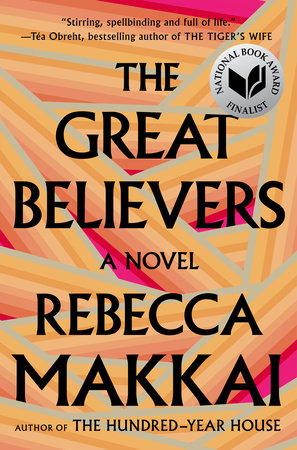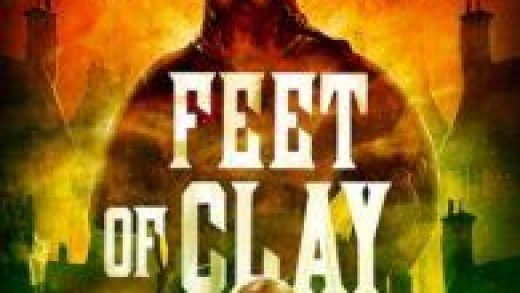For many, the 2018 NXIVM court case, indicting NXIVM’s founder Keith Raniere and his associate, the Smallville television actress Allison Mack, was wildly entertaining click bait, a salacious tabloid story, complete with sex slaves and the language of self-improvement and greed, but when I came across this story, I had been waiting for the arrest; it had been a long time coming.
When I met my friend Daniella in 2010, we became fast friends during weekly chats while our young sons played soccer in Brooklyn. I was struck by her beauty and humor and complexity. Also: her storytelling. She was from Mexico City and had become entrenched in a cult called NXIVM a year or two before having a child. She’d suffered a breakdown while being isolated on the cult’s property and somehow managed to get out of there not only alive but without having sex with or being branded by anyone. Nevertheless, the experience had clearly exploded her life. She’d tried to explain how Keith Raniere was gifted at honing in on vulnerabilities, how he was a master manipulator. She’d been entranced by his intelligence, had wanted desperately to please him. I read all that was available about Raniere at the time, but then—and still—the news stories only hinted at the complex emotional and psychological terrain. Daniella’s story not only continued to stick with me over the years, but it worked its way into my imagination.
My most recent novel St. Ivo is about two couples reckoning with the long-hidden secrets that have shaped their families. A cult makes an appearance. Or, more accurately, a cult and its ramifications reverberate through the story. Here, in no particular order, are some books that feature cults of one sort or another. All are completely and often scarily compelling.

The Great Believers by Rebecca Makkai
This compassionate and razor-sharp novel seamlessly merges the 1980’s AIDS crisis with a 2015 mother in search of her daughter who’s been lost to a cult. As these separate stories unfold, populated by an admirably large cast of soulful and often funny characters, they merge into one deep investigation of humanity and simultaneously create indelible love letters to both Chicago and Paris.

My Life in Orange by Tim Guest
When the popular Netflix documentary Wild Wild Country aired in 2018, I couldn’t go to a dinner or a party without the conversation veering into an animated discussion about the controversial Indian guru Bhagwan Shree Rajneesh (also known as Osho), his one-time personal assistant Ma Anand Sheela and their often middle-class, well-educated followers, who—on several communes across the globe—wore orange clothing and had lots of sex, while their children ran wild. Author Tim Guest was one of those children. His 2005 memoir recounts how, at age five, he was taken by his mother to live on an ashram in India, where they were given new names and promptly separated, as children on the Rajneesh communes were raised communally. Without trashing his mother or her fellow seekers, Guest writes unflinchingly about his own sense of abandonment, as well as the manipulations of Osho, whose utopian empire spectacularly crumbled into a swirl of laughing gas, Rolls Royces, tax-evasion…and murder.

The Secret History by Donna Tartt
This popular, page-turning ode to Dionysian rituals and beauty and the particular louche cool of Bennington in the mid 1980’s features Academia-as-Cult. A charismatic professor, Julian Morrow, improbably bewitches a group of elite students with his engaging teaching of ancient Greek. The names alone (Frances Abernathy! Bunny Corcoran!) are unforgettable, and as these characters become increasingly cut off from campus life, a glorious and harrowing unraveling ensues.

Going Clear: Scientology, Hollywood, and the Prison of Belief by Lawrence Wright
This 2013 National Book Award finalist for nonfiction is an exhaustive and wildly entertaining look at the famous celebrity-studded organization/cult/religion started in the 1950’s by science fiction writer L. Ron Hubbard and currently led by David Miscavige. The title itself is brilliant; “going clear” is how Scientology refers to the state of being freed from “engrams” which are “subconscious memories of past trauma.” Prepare to be amazed, especially if—like me—you know some practicing Scientologists or at least some Scientology apologists.

The Family: The Shocking True Story of a Notorious Cult by Chris Johnston and Rosie Jones
Perhaps the most sensational cult story out there (though it’s clearly impossible to pick just one), The Family does not disappoint with its examples of both a glittering charismatic leader and its downward spiral of abuse. Australian Anne Hamilton-Byrne is described as a “Kim Novak blonde”—wealthy, educated, radiant, and cruel. Her personal mythology drew from “Christianity, Hinduism, hatha yoga and New Age journeys into crystals, auras, light, color, LSD, and magic mushrooms, and even extraterrestrial life.” I admit I do wish she’d been around for Instagram. This story is shocking at every turn except one: the cruelty. And the ultimate destruction of innocent lives.

Educated by Tara Westover
This much-lauded memoir tells the story of an American family-as-cult, with a charismatic father-as-leader. The Westovers (their names are pseudonyms) are Mormon survivalists living in rugged isolation on an Idaho mountain, which the author describes with unforgettable beauty and tenderness, especially in contrast to the abuse she suffered there. Despite receiving no formal education of any kind, Tara Westover, with the encouragement from one of her also-brilliant brothers, manages to study and take the ACT (a standardized test required for college admission), attend Brigham Young University and then the University of Cambridge in England, where she ultimately excels and graduates with a PhD. This story is so outrageous and yet completely relatable and left me pondering how all families—not just the abusive ones—can have their cult-like moments.

Trust Exercise by Susan Choi
This was my favorite book of 2019. Though much of its well-deserved praise has understandably centered around elements of its dazzling meta-fiction, what lingers is the cult-like atmosphere of the theater program at the arts high school that Choi so sharply evokes. Having previously explored the world of cults (her 2004 Pulitzer Prize-finalist American Woman fictionalized the Patty Hearst kidnapping), Choi is no stranger to radical natures. There is menace in the 1980’s thespian atmosphere of Trust Exercise, but there is also profound humor and passion. Here’s one cult that’s not too difficult—at least for this reader—to imagine wanting to join.
The post 7 Darkly Fascinating Books About Cults appeared first on Electric Literature.










